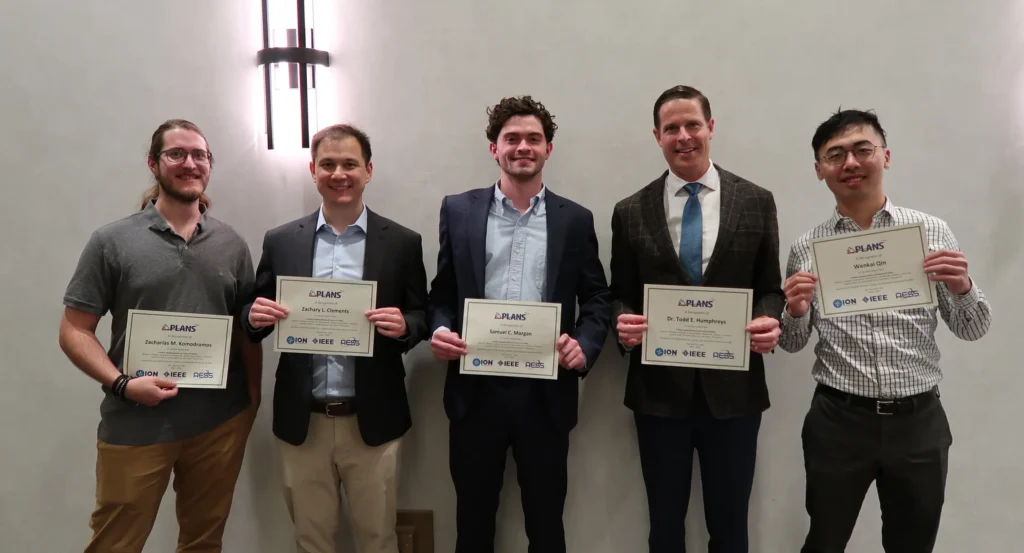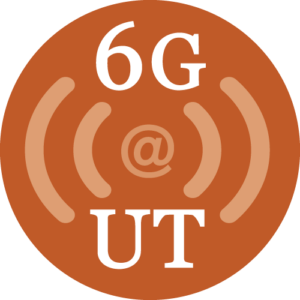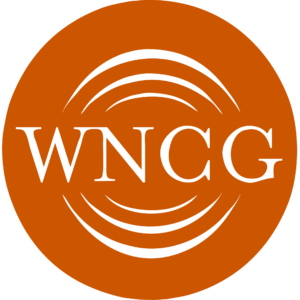The RNL’s Dr. Todd Humphreys gave a virtual talk on GNSS Spoofing to the Royal Aeronautical Society in Toulouse on Oct. 1, 2025, detailing the progression and discovery of various spoofing techniques and countermeasures.
Investigating Europe’s Space-Borne GNSS Interference
October 2025: A strong, repetitive radio signal has been interfering with GNSS signals across Europe as far back as 2019.
The BBC’s Science in Action was interested in learning more. “This is the main finding of my student Zach Clements’s work,” the RNL’s Dr. Todd Humphreys responded, “where he’s determined with a high degree of certainty that the interference we’ve noticed… is coming from space.” Zach Clements, a PhD student in Aerospace Engineering at the University of Texas at Austin and RNL researcher, presented his findings at the 2025 ION GNSS+ conference.
Many continuously-operating GNSS reference stations, scattered across the hemisphere, have been reporting simultaneous bursts of interference. Primarily striking the Baltic states, Finland, and Norway — with Svalbard, Spain, Canada, and Greenland marginally affected — the interference cannot be coming from the surface.
The interference is likely triggered by human activity. But “if this is deliberate, it’s a strange kind of deliberate.” Dr. Humphreys stated that, “what we see is fairly constant in the kinds of temporal patterns and spatial patterns,” with an estimated signal power reaching as high as 2kW from a satellite in GEO. It is possible that this interference source is coming from routine satellite maintenance, unbeknownst to the satellite operator.
“By putting the pattern together, the timing, and… the spatial distribution, we’re able to reduce the number of candidate satellites just to those you could count on one hand,” said Dr. Humphreys. These findings develop new tools to identify sources of jamming, defending against the future of electronic warfare.
Listen in with the BBC’s Roland Pease here.

Interference in European Skies
September 2025: GNSS spoofing has been growing more prevalent in European airspace. A report for the International Civil Aviation Organization (ICAO) prepared by representatives of Switzerland, Finland, Estonia, Lithuania, Latvia, and Poland, shows that almost 123,000 flights have been affected by radio interference. Much of this interference is concentrated in Russian airspace and has been historically attributed to Russian sources.
“Of course, a large part of Russian [spoofing and jamming] activity is directly tied to its war with Ukraine,” the RNL’s Dr. Todd Humphreys stated. But this interference, “originating far from the front lines — for instance, from Kaliningrad or regions along the Estonian border — is more likely [of offensive origin], rather than a defensive one.” After all, “some of the [interference] techniques used… seem to be specially designed to disrupt Western aviation. This has nothing to do with protecting Russia.”
For the full article, read more here.

GNSS Interference Spills Into Civilian Aviation
September 2025: In late August, the president of the European Commission, Ursula von der Leyen, had her plane knocked off course due to GNSS interference. Since the escalation of the Russian-Ukranian conflict in 2022, radio interference has begun to affect much of continental Europe.
The RNL’s Dr. Todd Humphreys said, “if the pilots [on von der Leyen’s flight] redirected due to jamming, it’s a near certainty that both of the GPS receivers used in the flight management system were jammed. Pilots don’t divert for no reason.” Dr. Humphreys adds that, “despite years of research, no one has found a replacement for GPS that is cheap, globally accessible, and also provides accurate timing, yet not vulnerable to jamming and spoofing like GPS/GNSS is.”
“Precision guidance munitions are severely affected,” continued Dr. Humphreys. “Smart bombs are rendered dumb by GPS spoofing and jamming, [and] small drones face spoofing and jamming routinely.” Many US-supplied weapons rely on GPS, such as the Himars missiles and Excalibur GPS-guided artillery shells, and have largely been rendered inoperable due to GNSS jamming.
For more, read the full article here.

Starlink Looks Toward PNT Capabilities
August 2025: With rising concerns on the vulnerability of GNSS, the FCC seeks to explore solutions to improve the robustness of PNT services. SpaceX argues that the Starlink system may support the FCC’s interest in a ‘layered’ approach to national PNT resilience by providing secure, reliable, and global coverage.
“It looks like SpaceX has come around to viewing PNT as ‘today’s problem’,” says the RNL’s Dr. Humphreys, “But what’s interesting about their recent comment is an emphasis on… D2C signals for PNT rather than the Ku-band broadband signals.” He says that at present, “Starlink’s timing in the Ku band is so irregular that accurate pseudorange-based PNT is not possible,” as can be seen in a recent paper from the RNL.
For more, and a look into Starlink’s potential future in PNT, read the Inside GNSS story here.

The RNL’s Dr. Todd Humphreys Receives Harold Spencer-Jones Gold Medal from Royal Institute of Navigation
July 2025: The RNL’s Dr. Humphreys was awarded the Harold Spencer-Jones Gold Medal from the Royal Institute of Navigation. Congratulations to Dr. Humphreys for this great achievement!

GNSS: The Unseen Pillar of Modern Society
June 2025: Society’s dependence on GNSS is widespread, and users of different services reliant on GNSS “are not all acutely aware of the risks associated with their dependency on it and the ways that the system can be disrupted or degraded,” according to Caitlin Durkovich, a former national security official and critical infrastructure expert.
The RNL’s Dr. Humphreys is “most concerned about aviation.” He says “At least one fatal aviation accident in Europe can be traced to GNSS interference as a primary cause. A deliberate attack against US aviation, as opposed to the collateral attacks in Europe, would cause astounding economic harm.”
For more on the story, and a look into the highly unlikely scenario where the entire GPS network were in an outage, read the WIRED story here.

RNL’s Sam Morgan Receives IEEE/ION PLANS 2025 Best Student Paper Award
May 2025: Congratulations to Sam Morgan for receiving IEEE/ION PLANS 2025 Best Student Paper Award. For more, see here.

New Security Threats in the Skies
April 2025: Vanity Fair reports that a DHL pallet in Birmingham, England, last July caught fire, with a similar events occurring in Leipzig, Germany and near Warsaw, Poland. The incendiary devices were suspected to be part of an “ongoing campaign to sow chaos across Western Europe” by Russia’s military intelligence agency.
The ongoing campaign includes “sabotage and hijacking as well as more modern kinds of strikes, such as breaching databases, tampering with navigational systems, and potentially even the hacking of onboard systems.” One example is the manifestation of a demonstration conducted by the RNL’s Dr. Humphreys showcasing GPS spoofing. These types of attacks are increasingly common in certain areas of the world, and “current aircraft navigation systems can’t detect it” according to Xavier Orr, cofounder of Advanced Navigation. For more on the story read the Vanity Fair article here.



